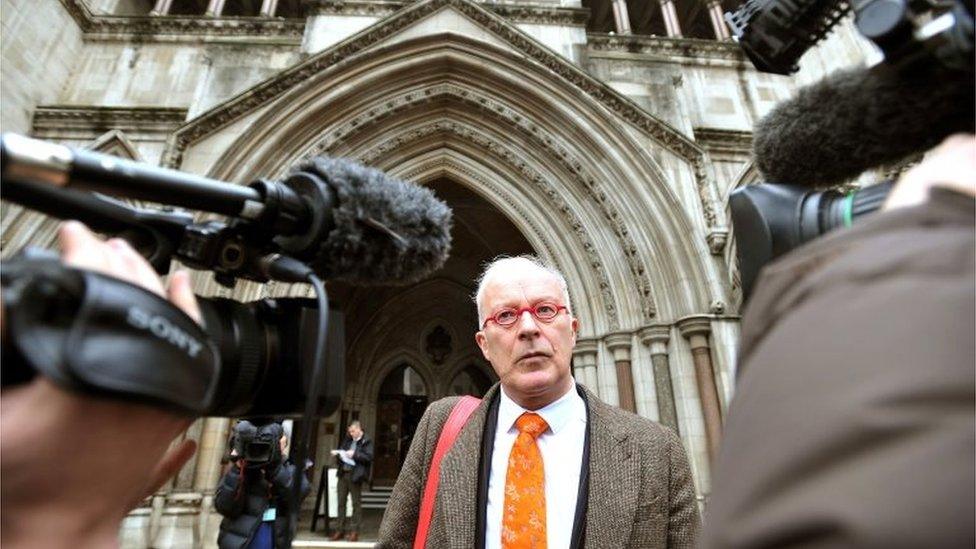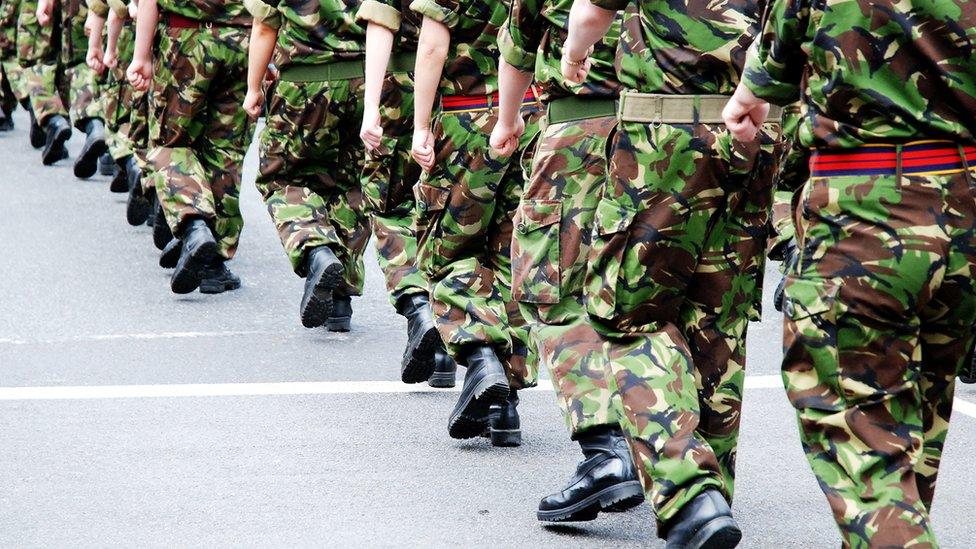Nadia Whittome sacked after opposing veterans bill
- Published

Labour MP Nadia Whittome says she has been sacked from her junior role after voting against a new law making it harder for military veterans to be prosecuted for past actions.
Labour MPs Olivia Blake and Beth Winter also stepped down from their roles.
The government says the bill will protect the armed forces from "vexatious prosecutions" but critics argue it could decriminalise torture.
Eighteen Labour MPs, including former leader Jeremy Corbyn, voted against it.
Ms Whittome said the Overseas Operations (Service Personnel and Veterans) Bill was "anti-veteran and anti-human rights".
She was sacked as the shadow health secretary's parliamentary private secretary (PPS) - an unpaid job whereby MPs support those in the shadow cabinet.
Labour MPs were ordered to abstain in Wednesday's vote. A Labour source told the PA news agency: "Anyone who wanted to vote against (the) whip was told they would have to resign."
'Damaging bill'
Two other parliamentary private secretaries, Beth Winter and Olivia Blake, have stepped down after voting against the bill, Labour says.
In a statement, Ms Whittome said: "I opposed the bill because it effectively decriminalises torture and makes it harder for veterans to take legal action against the government or for war crimes to be investigated.
"The decision to break the Labour whip is a difficult one and I understand many of my colleagues came to a different conclusion and decided to abstain on this bill in the sincere hope that the bill can be amended at later stages.
"I hold out no such hope given how flawed and damaging this bill is.
"It strikes me that if a piece of legislation has had concerns raised by the Equality and Human Rights Commission, the British Legion, Amnesty International and other organisations on the front line of supporting veterans and defending human rights we need to stop and ask ourselves why."
Ms Blake said she didn't believe the bill could be amended to "fix the fundamental flaws in the bill".
She also argued that the bill "makes it harder for these ex-military personnel to sue the ministry for failure in its duty of care to them, meaning troops who develop PTSD, blindness and other conditions would be left with no recourse to justice".
'Double standards'
Labour's frontbench argued that although the government had got parts of the bill "badly wrong" it could still be improved at a later stage.
The party's shadow defence minister Stephen Morgan said: "We all agree that we must protect our troops from vexatious claims" but said the government's bill "fails to properly protect against vexatious claims and undermines Britain's proud adherence to international laws".
Responding to Ms Whittome's sacking, Labour's former shadow home secretary Diane Abbott tweeted that the bill "violates essential rule of law principles" and that Ms Whittome had "voted absolutely with Labour values".
The bill itself has also been criticised by some senior military figures including General Sir Nicholas Parker Commander in Chief, Land Forces 2010-2012.
He said he was worried the bill would risk the UK being perceived as "setting double standards".
Ministers say the Overseas Operations (Service Personnel and Veterans) Bill would protect veterans from false allegations arising from overseas operations by making it harder for them to be prosecuted five years after an alleged incident.
It also introduces a statutory presumption against prosecution.
'Not an amnesty'
The bill, which was promised in the Conservative's 2019 manifesto, was partly prompted by the case of lawyer Phil Shiner who brought abuse claims against UK troops after the Iraq War.

Phil Shiner admitted nine allegations of acting without integrity, including that he had made unsolicited approaches to potential clients.
He was struck off after admitting to acting recklessly by claiming UK troops had tortured Iraqis. Then Defence Secretary Sir Michael Fallon accused Mr Shiner of making "soldiers' lives a misery".
The current Defence Secretary Ben Wallace insisted the bill is "not an amnesty... or the decriminalisation of erroneous acts".
He said service personnel who break the law would still be investigated but added "what we will not accept is the vexatious hounding of veterans and our armed forces by ambulance-chasing lawyers motivated not by the search for justice, but by their own crude financial enrichment."
In addition to the 18 Labour MPs, the bill was also opposed by the SNP and Liberal Democrats.
However it passed its second reading by 331 votes to 77 and will now be debated in more detailed by MPs at a later date.
- Published18 March 2020

- Published16 March 2020

- Published16 September 2020

- Published12 September 2020
